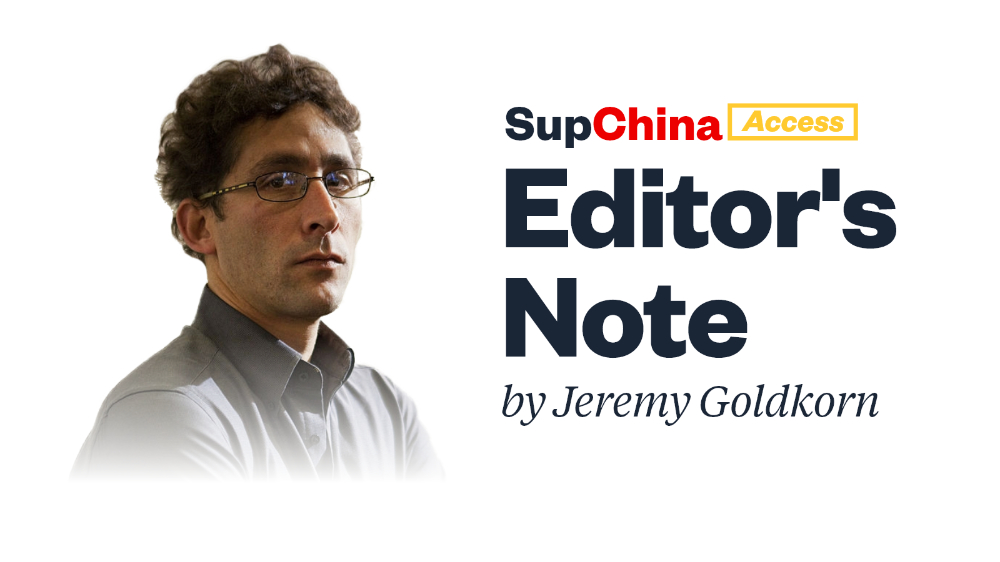Editor’s note for Friday, August 27, 2021
A note from the editor of today's The China Project Access newsletter.

Dear reader,
Two news stories that broke today that you need to know about:
“China plans to propose new rules that would ban companies with large amounts of sensitive consumer data from going public in the U.S.,” reports the Wall Street Journal based on insider sources. The Journal’s sources mention that pharma companies and others with “less sensitive data” could still list in America, but the new rules would pretty much rule out any internet company.
Also today, a more ambitious set of new guidelines (in Chinese) was released by the Cyberspace Administration of China (CAC), which has become the most powerful internet regulator in Xi Jinping’s China. The new rules seek to stop internet companies from using algorithms for a range of reasons.
There is, of course, a clear concern with political issues: Like people, algorithms must be censored. But many of the new rules seem very sensible and would make a lot of sense in the land of Facebook, Twitter, YouTube, and Amazon. Tech analyst Kendra Schaefer has an excellent Twitter thread summarizing the key points, which include:
- Users must be provided with a convenient way to see and delete the keywords that the algorithm is using to profile them…there are limits on the types of keywords algos can collect…Users…must be allowed to opt out…
- Algorithms cannot push info to minors that induce them to imitate unsafe behaviors or bad habits, or profile them in order to encourage internet addiction.
- [Algorithms must not dictate] brutal work conditions for ride-hailing drivers, delivery drivers…
- No using algorithms for differential treatment: “providers shall not use algorithms to implement unreasonable trading conditions such as differential treatment and transaction prices based on consumer preferences and transaction habits and other illegal acts.”
Schaefer concludes: “As far as I’m concerned, this policy marks the moment that China’s tech regulation is not simply keeping pace with data regulations in the EU, but has gone beyond them.” Along similar lines, Rogier Creemers, a scholar of digital technology law and policy in China, tweeted:
China is now a thought and regulatory leader in many of these fields. Even if we have profound (and justified) issues with many of their solutions, many others are often rational and rather more competent than China gets credit for. Look at algorithms for instance.
Yes, Beijing has a bit of a thing with political stability, and thus control. However, the fact that algorithms can lead to political radicalization and polarisation is a big issue here in the West. We could have regulated for political balance on, say, YouTube or Twitter.
Perfectly possible within a democratic society: many countries have similar requirements for broadcasting. But we chose to let tech develop as unregulated monopolies or oligopolies. This has consequences for the West’s political attractiveness and corporate competitiveness.
Our word of the week is: Common prosperity won’t “rob the rich to help the poor” (共同富裕…不搞“杀富济贫” gòngtóng fùyù…bù gǎo “shā fù jì pín”). See our reporting on this on The China Project for background.
—Jeremy Goldkorn, Editor-in-Chief






